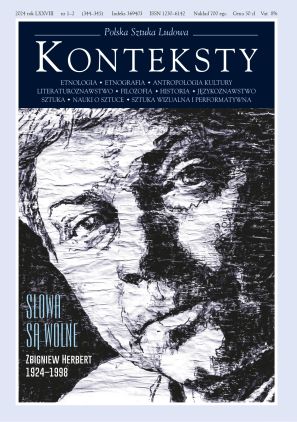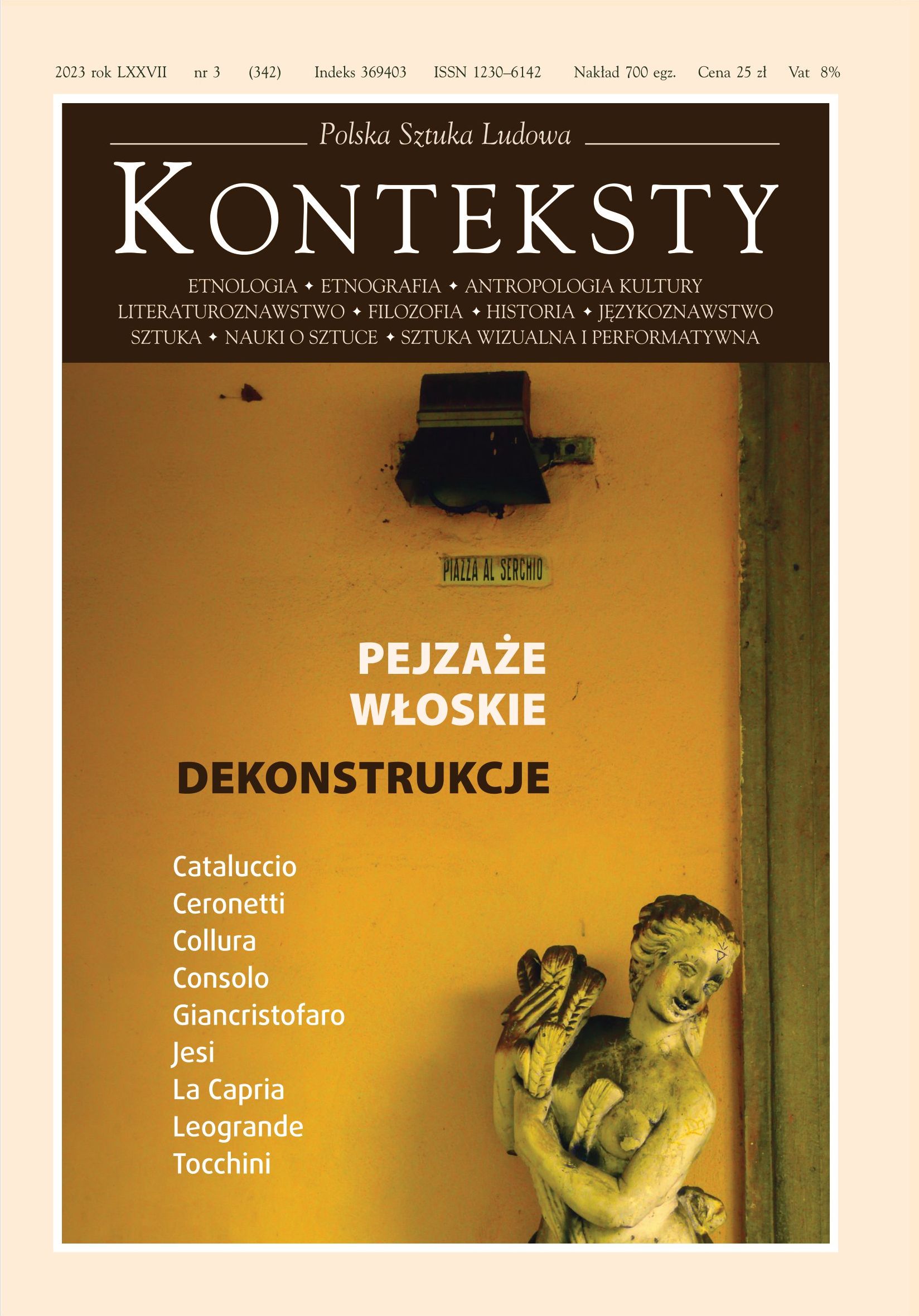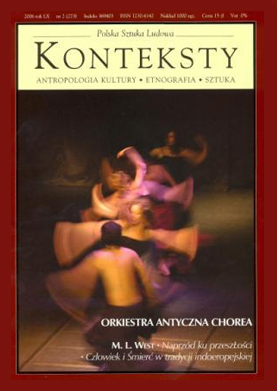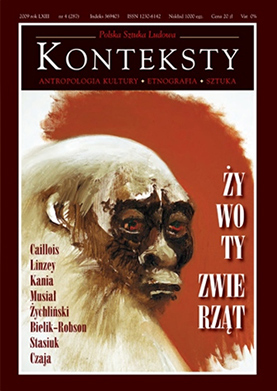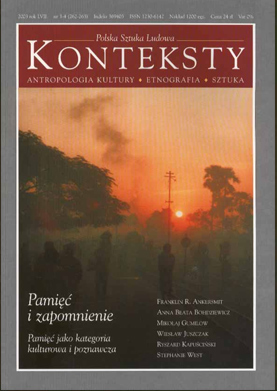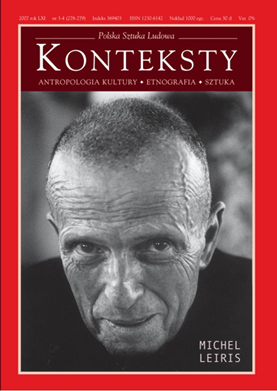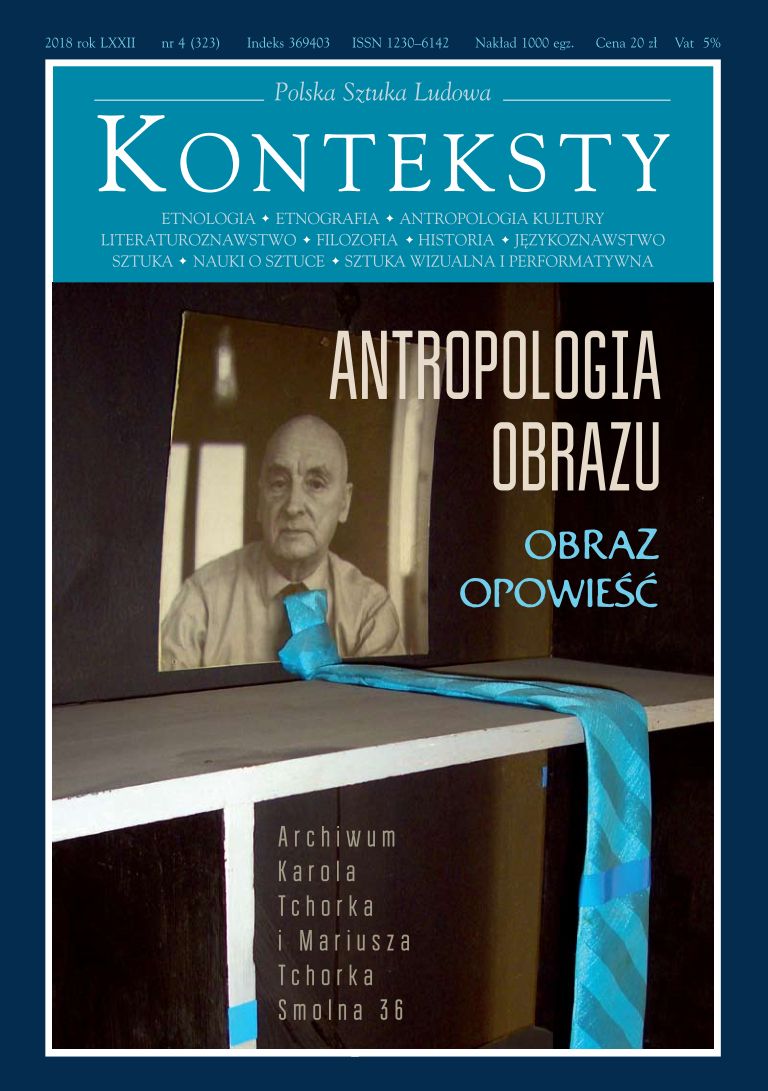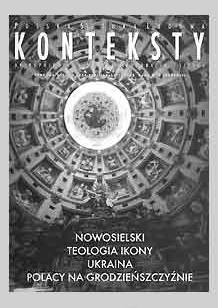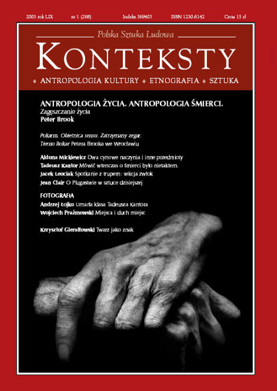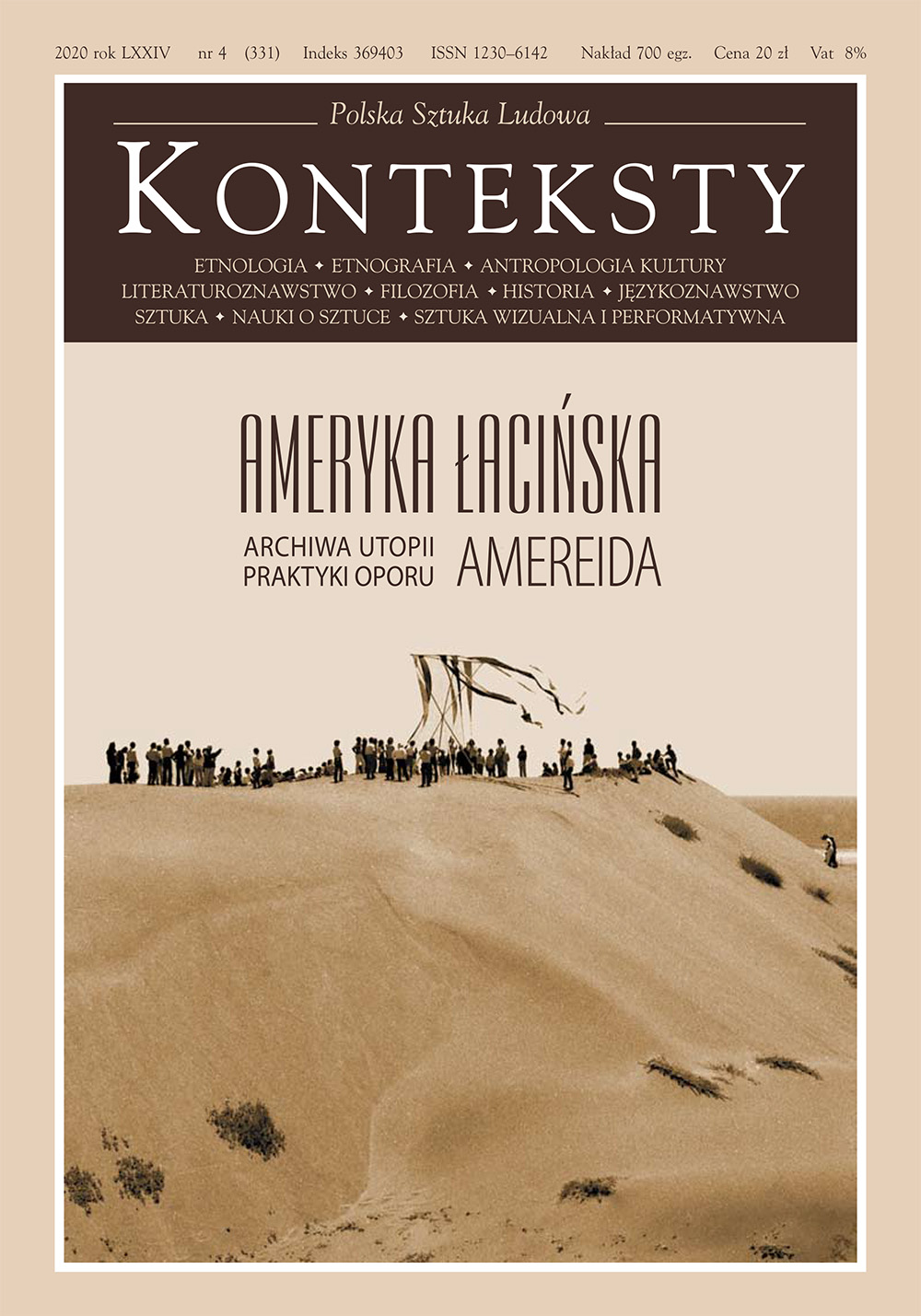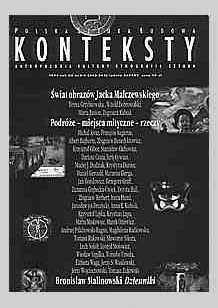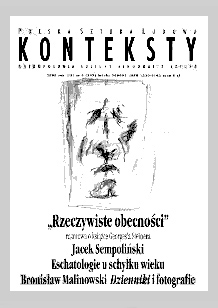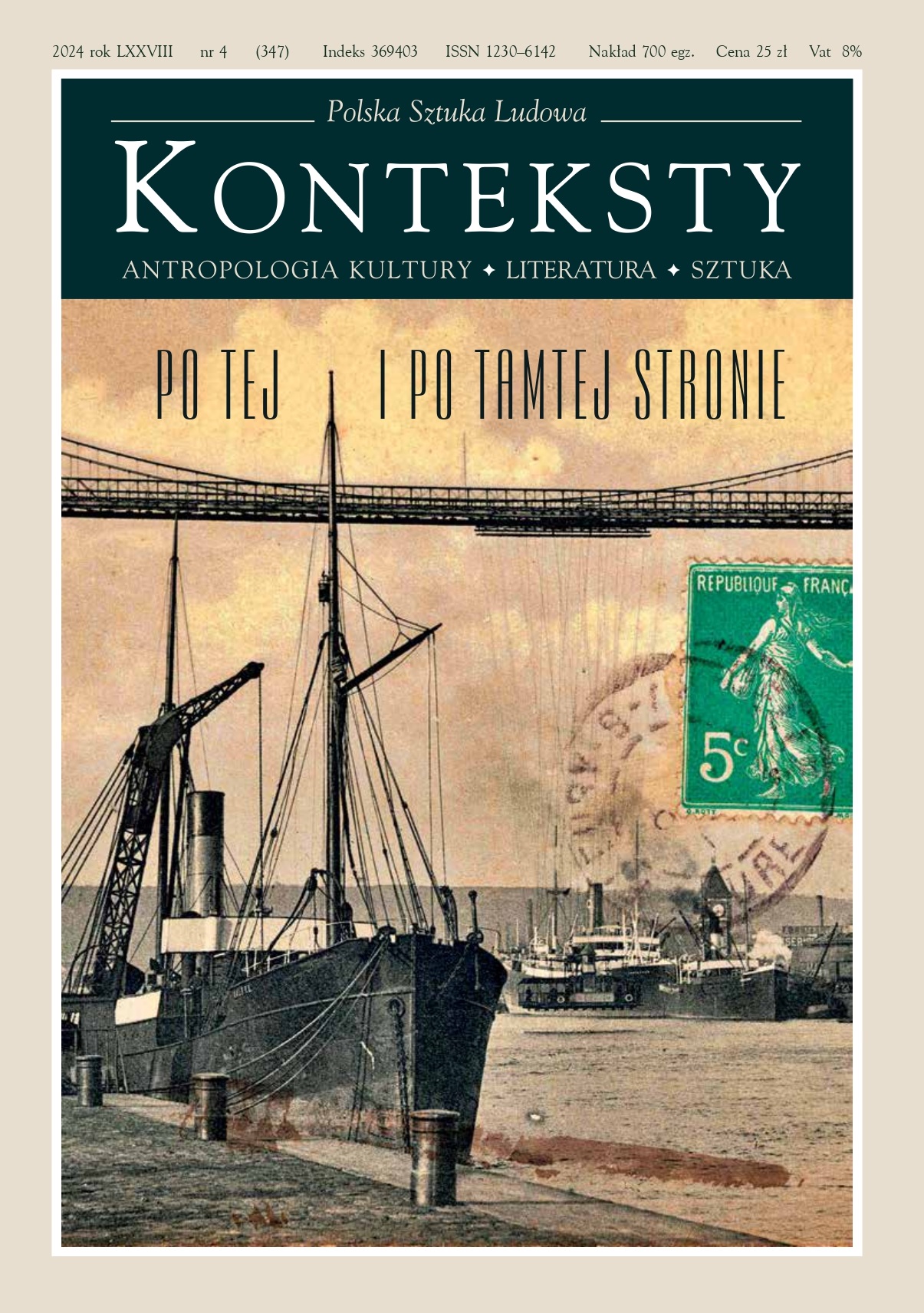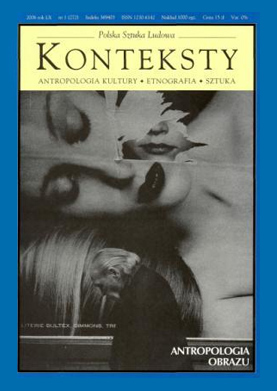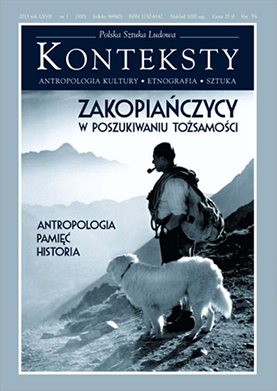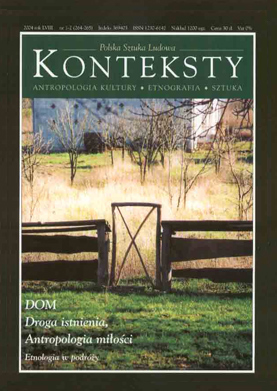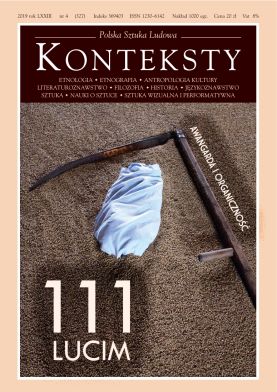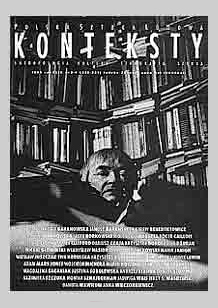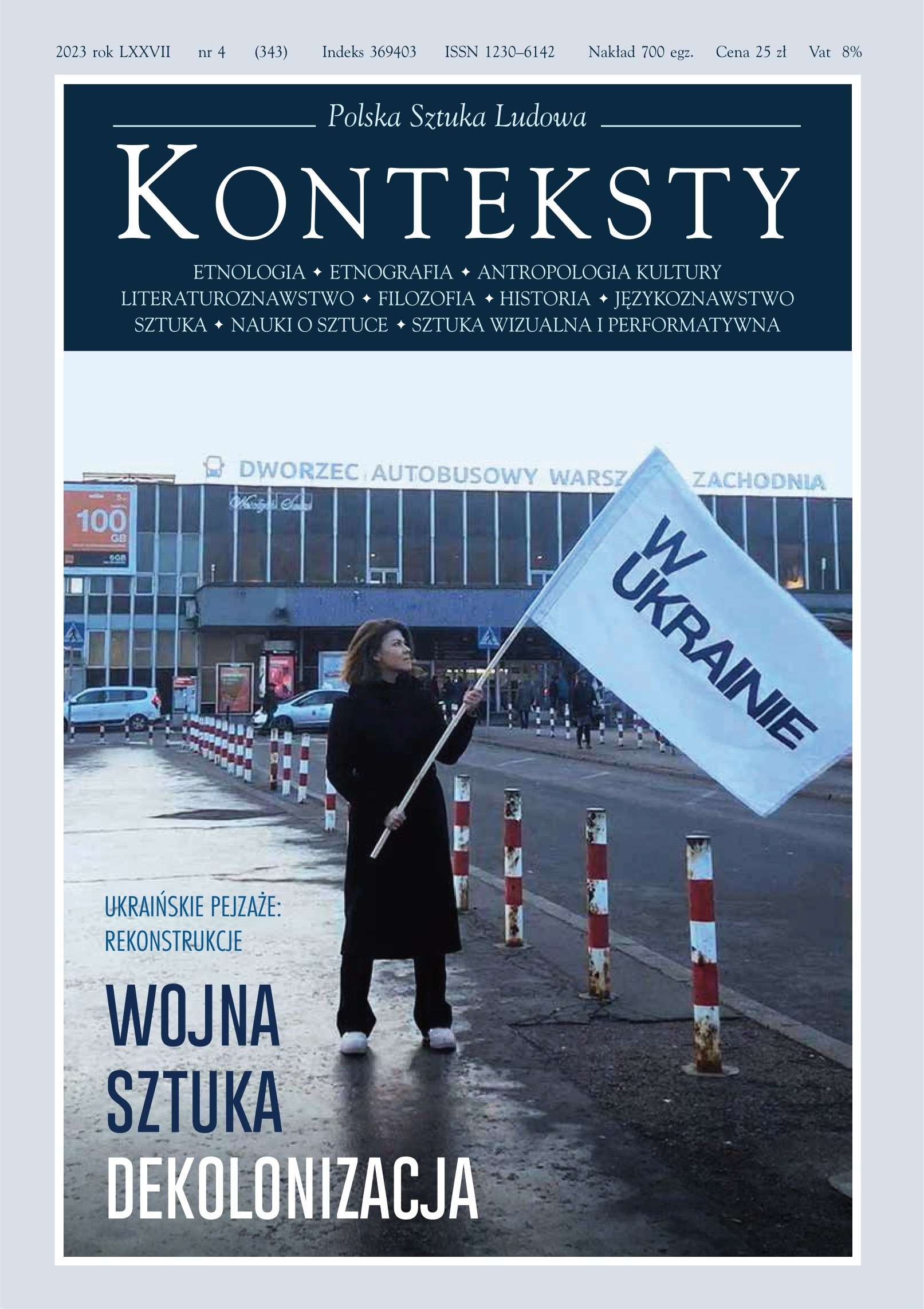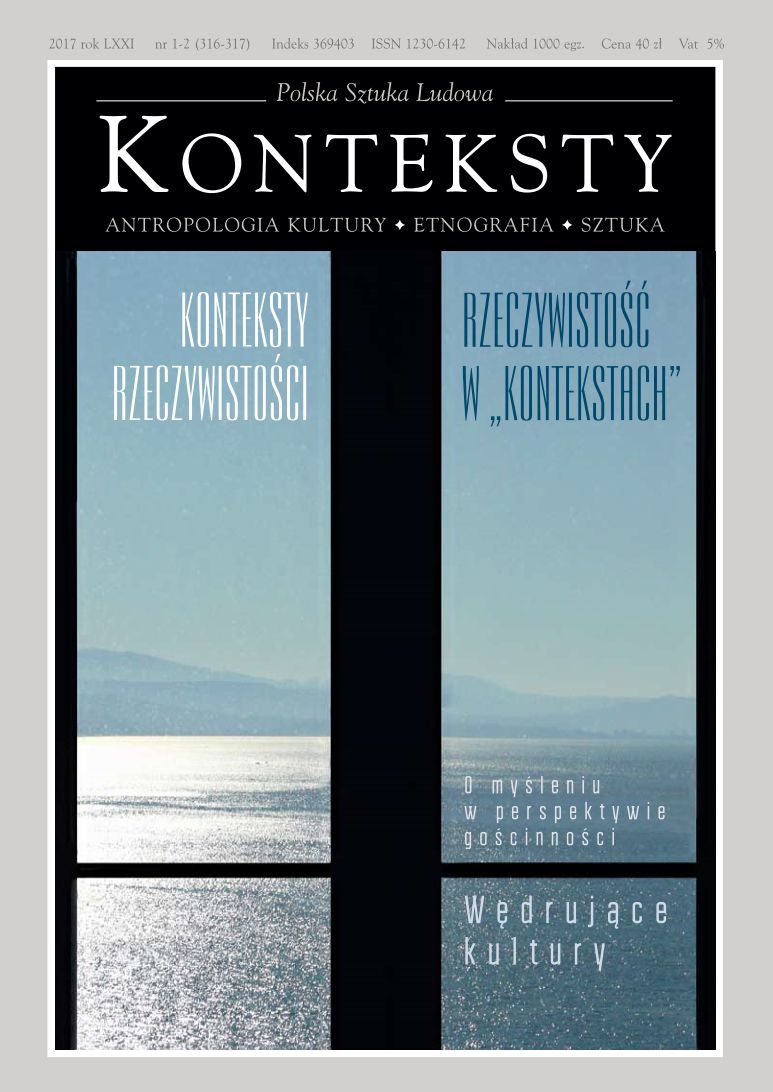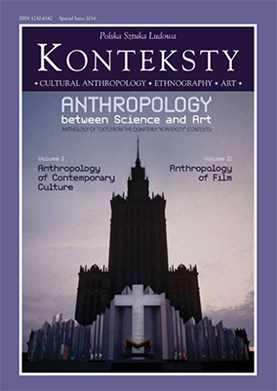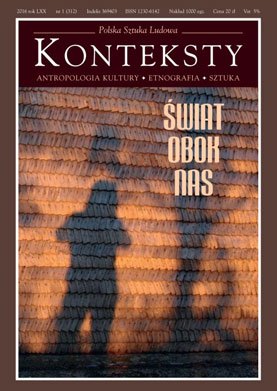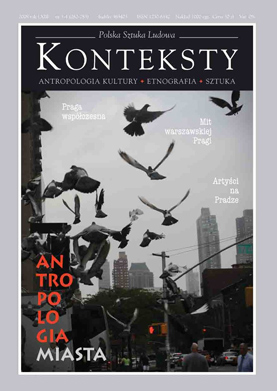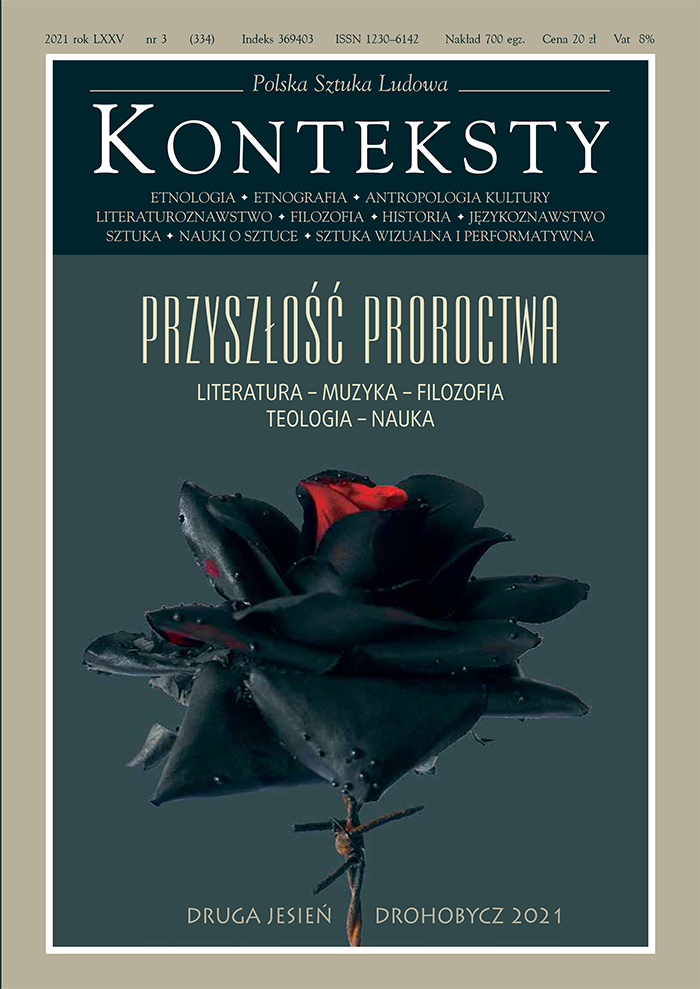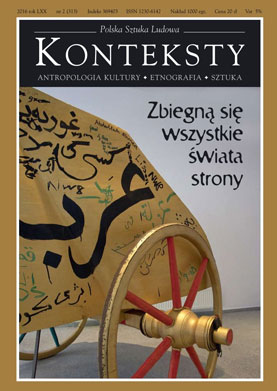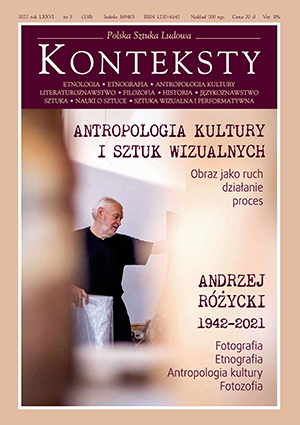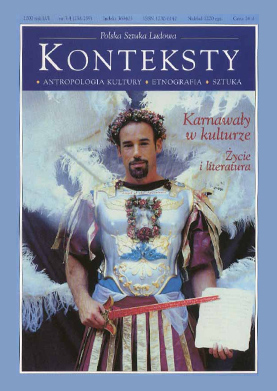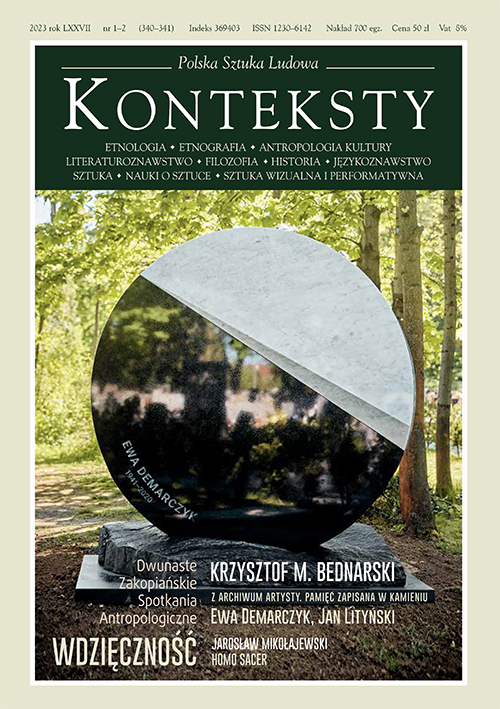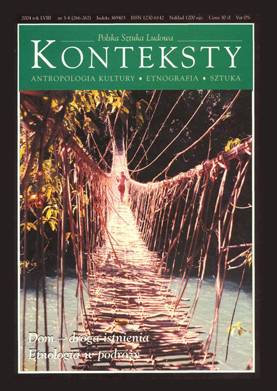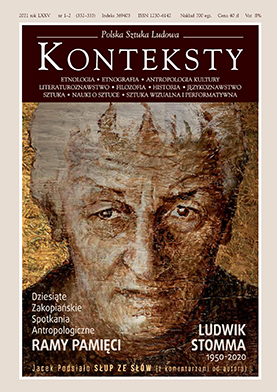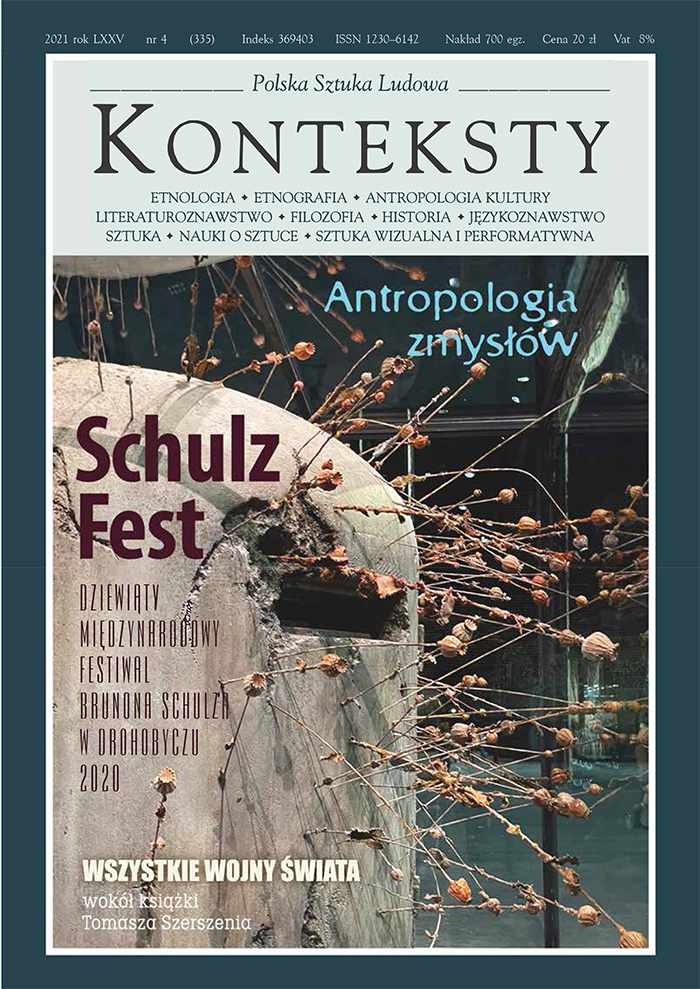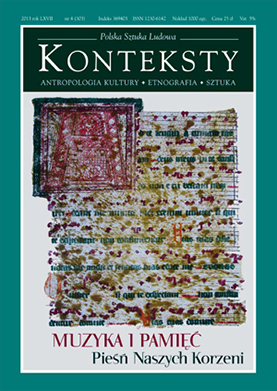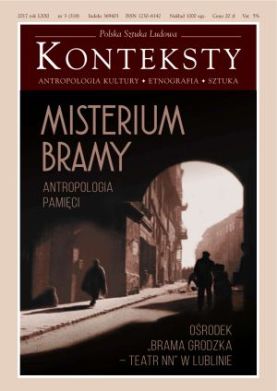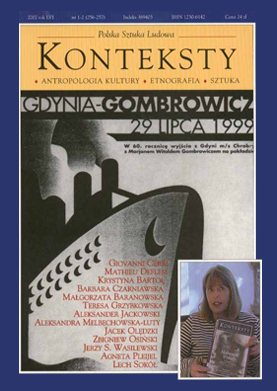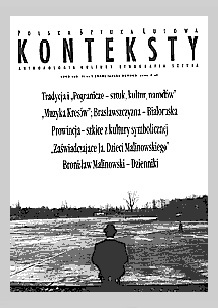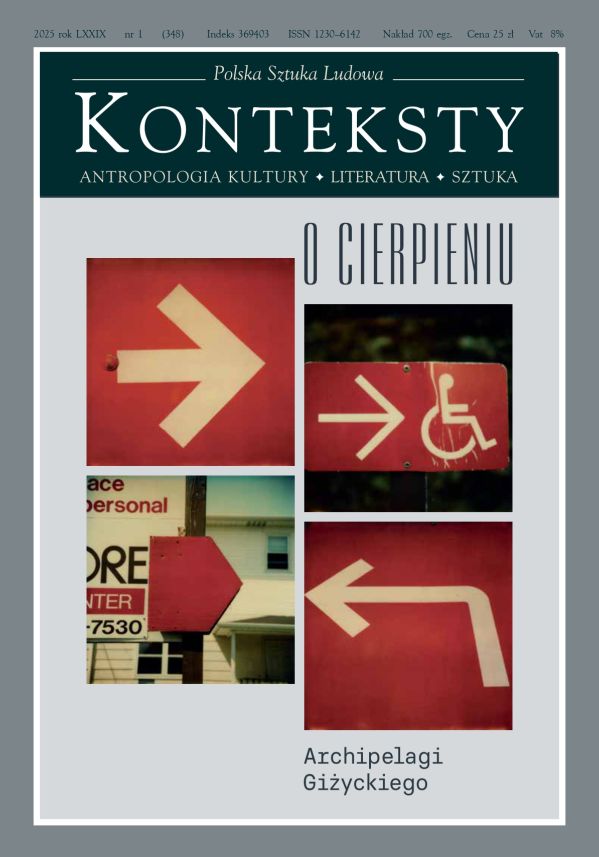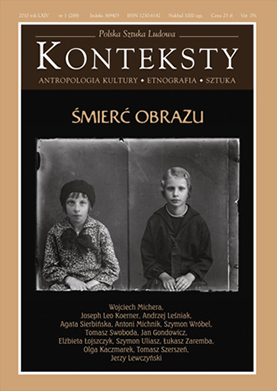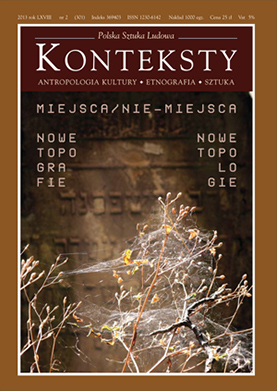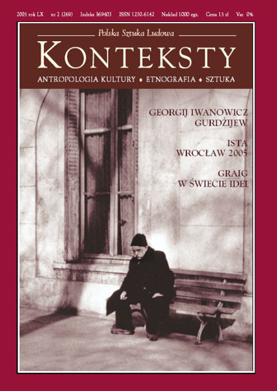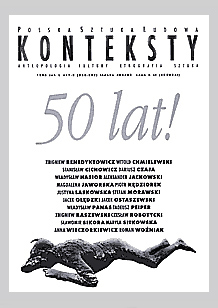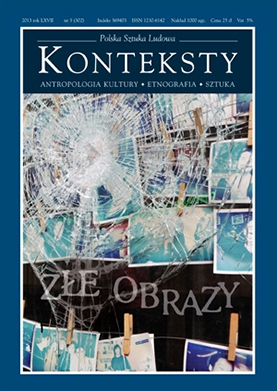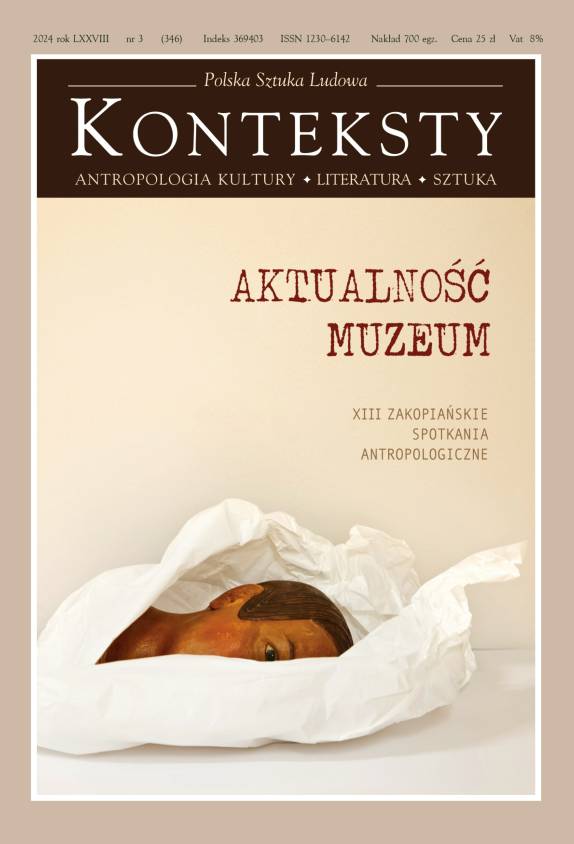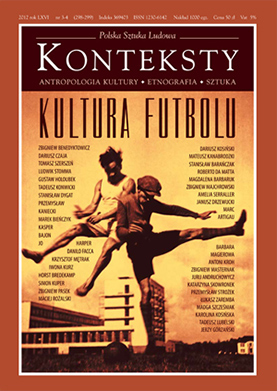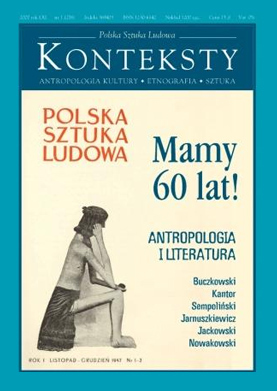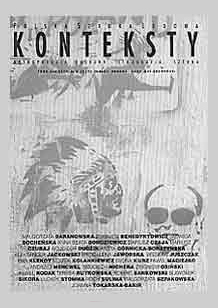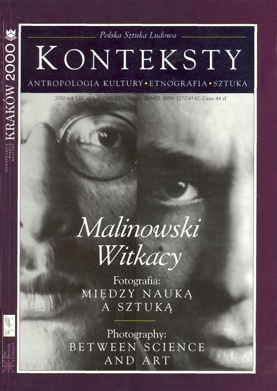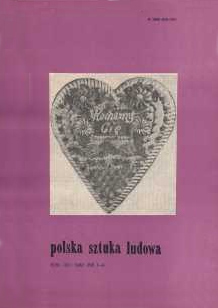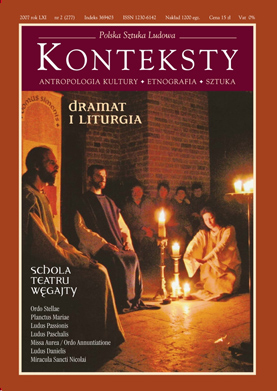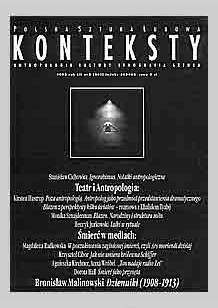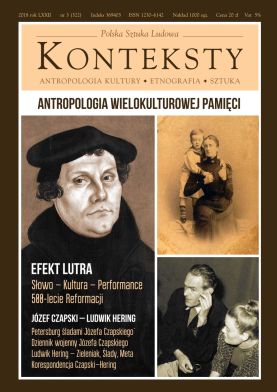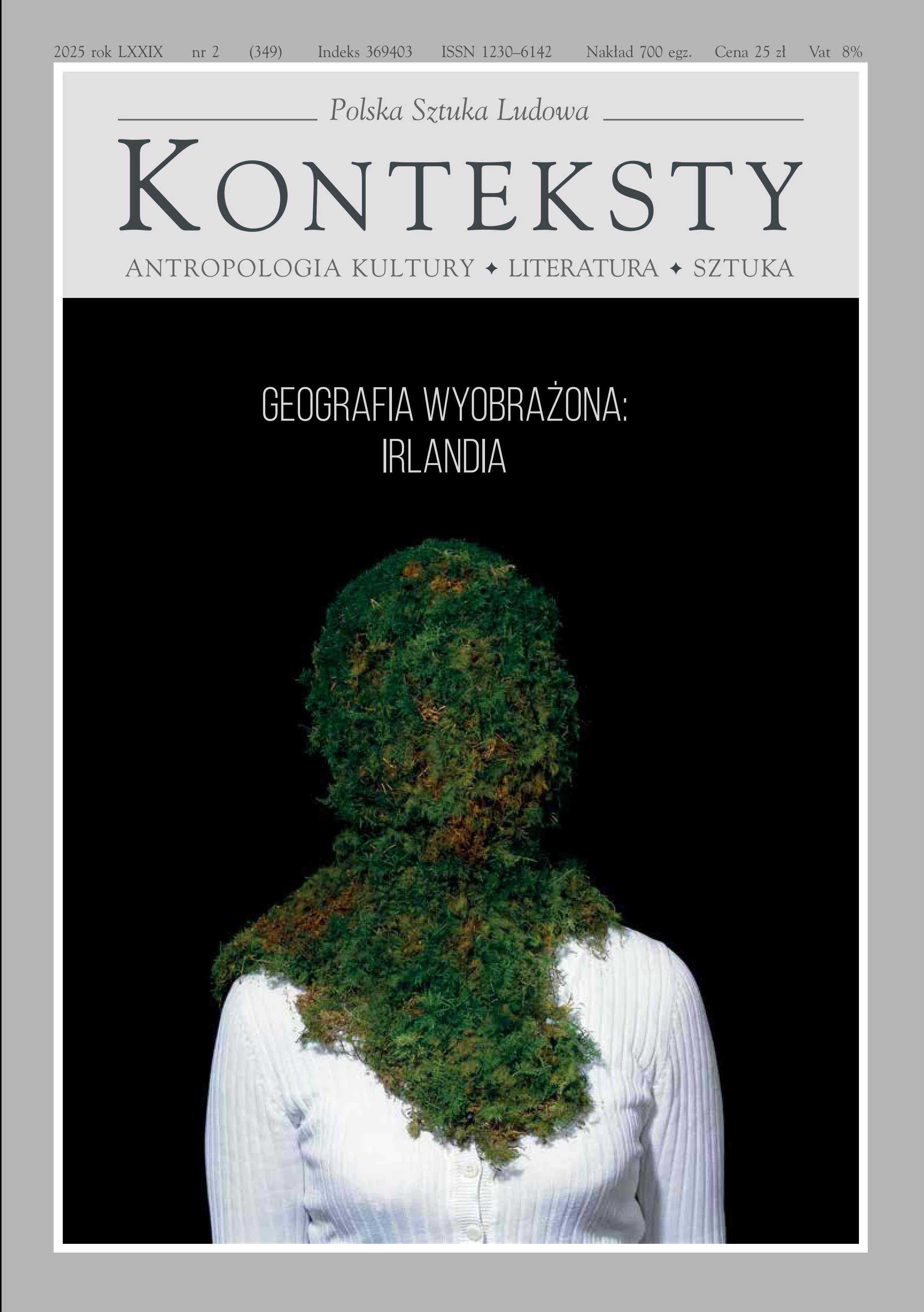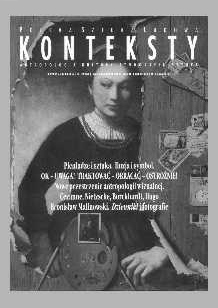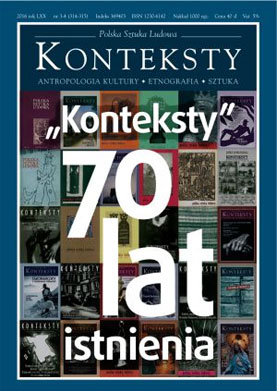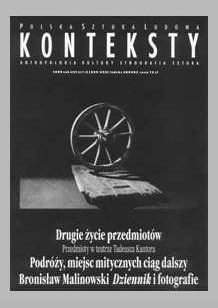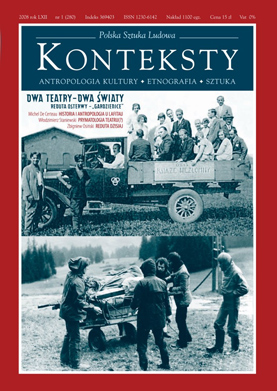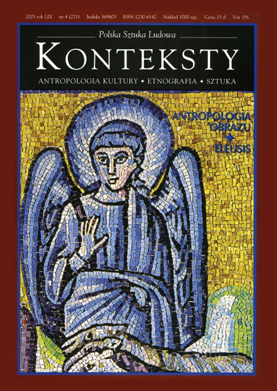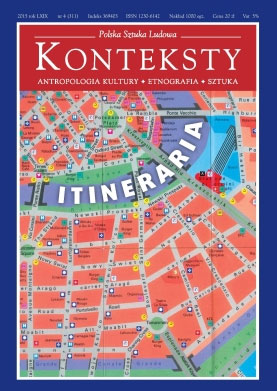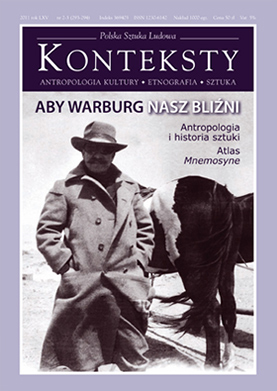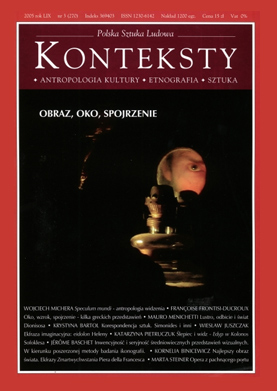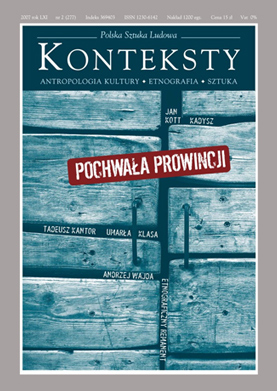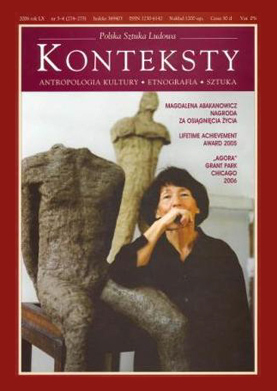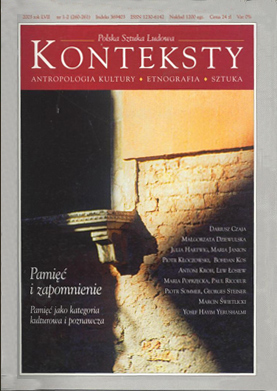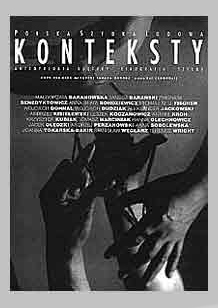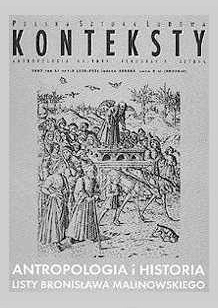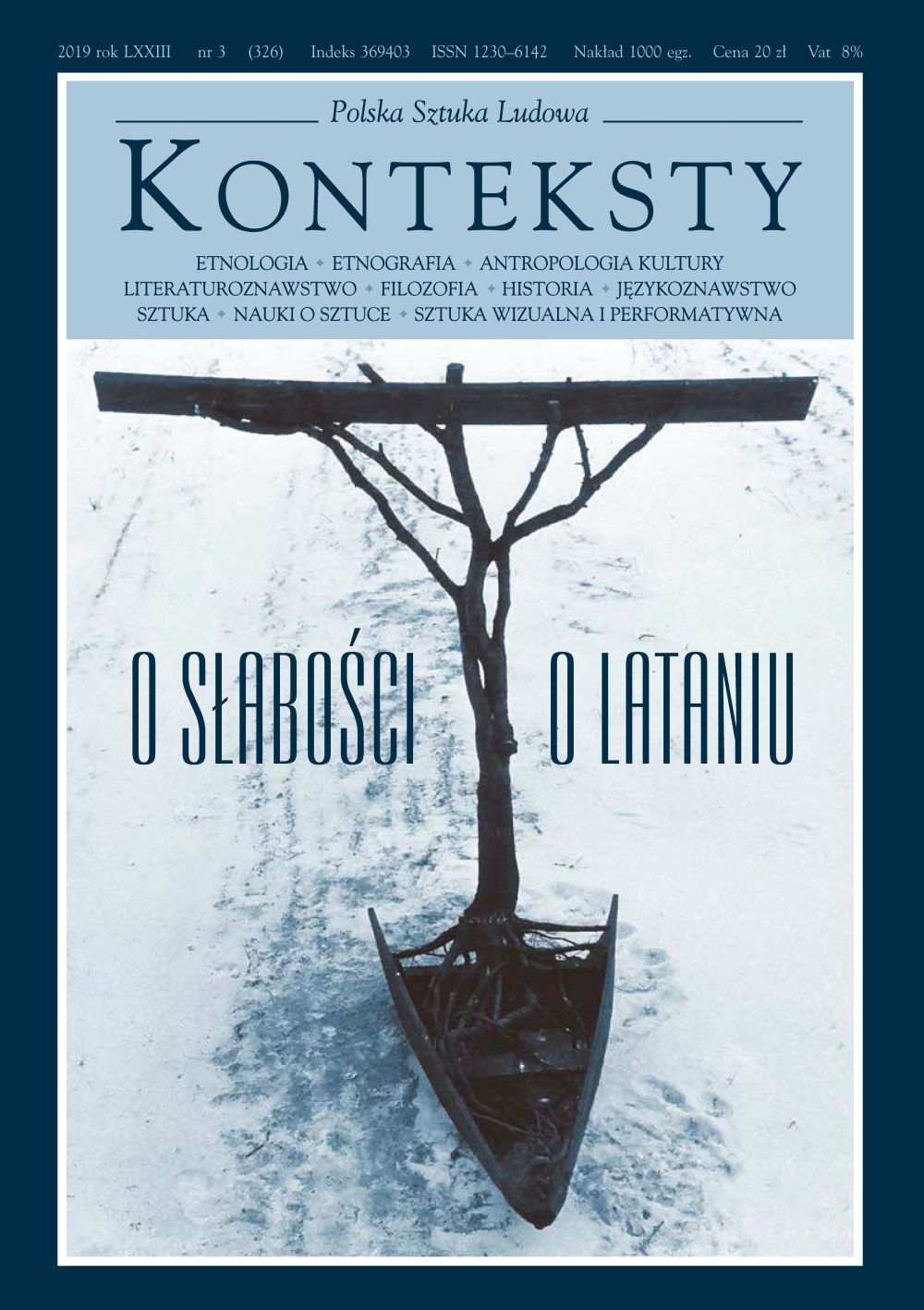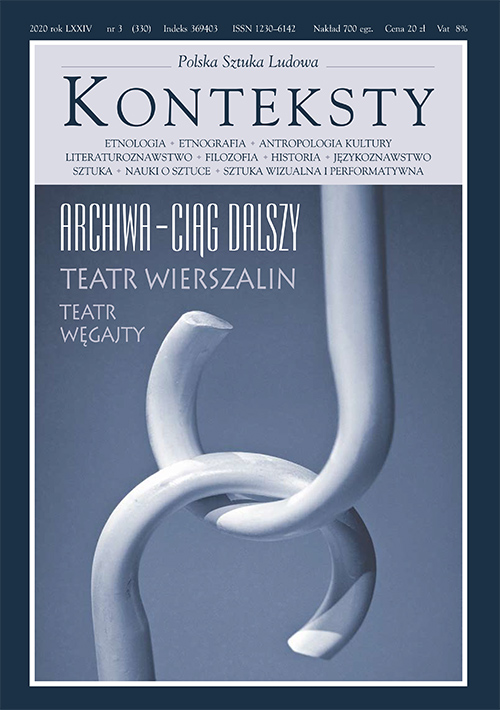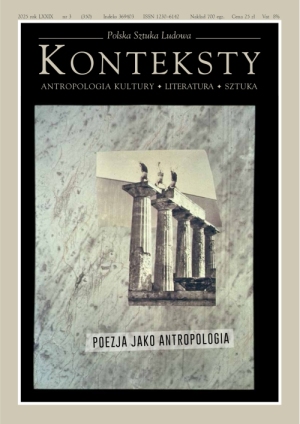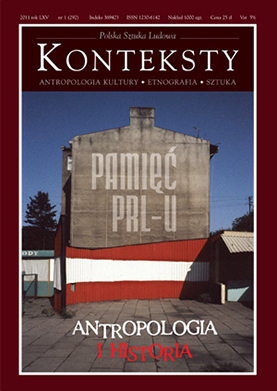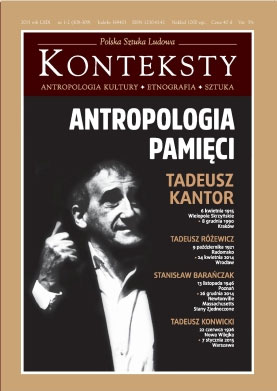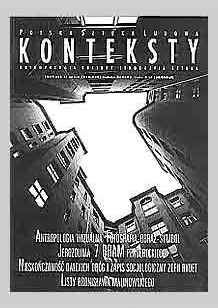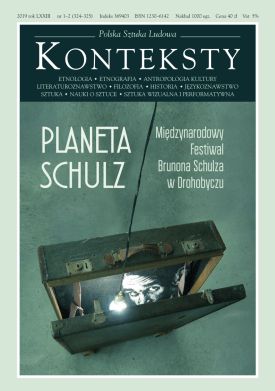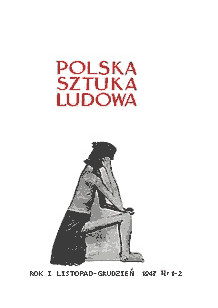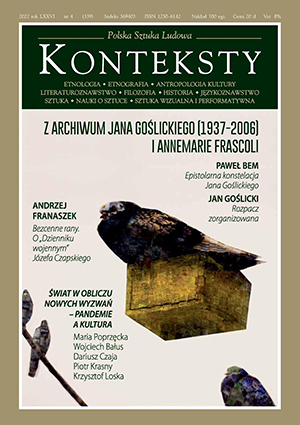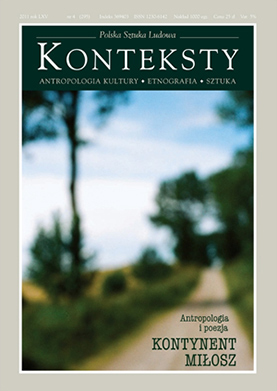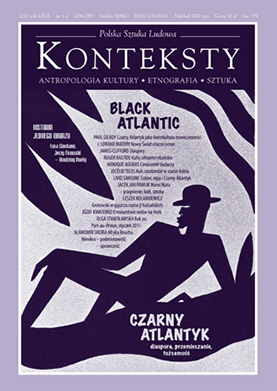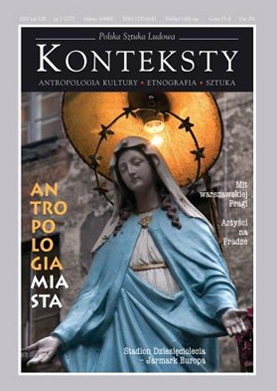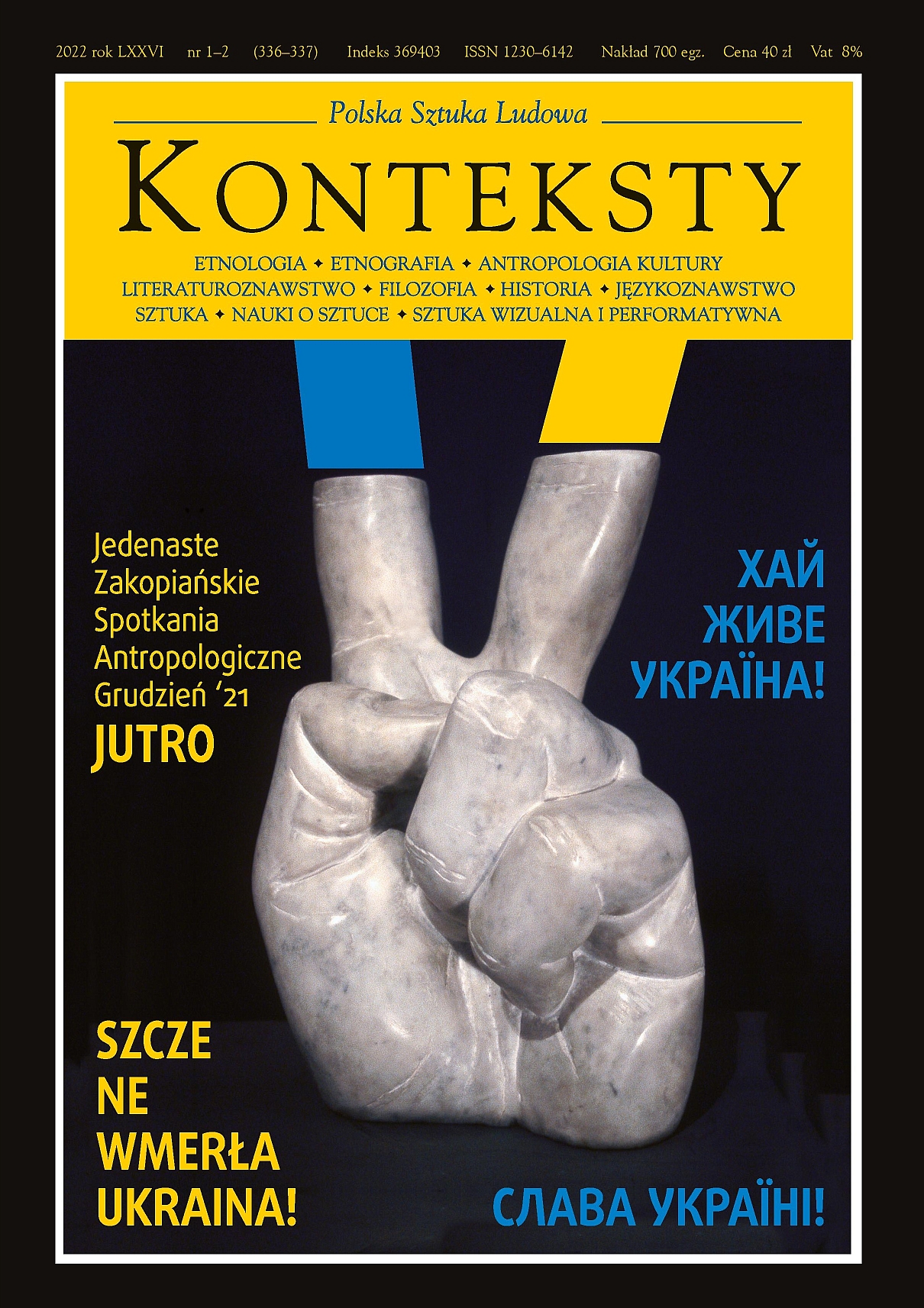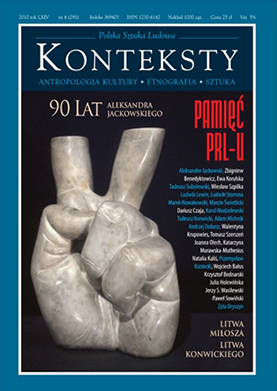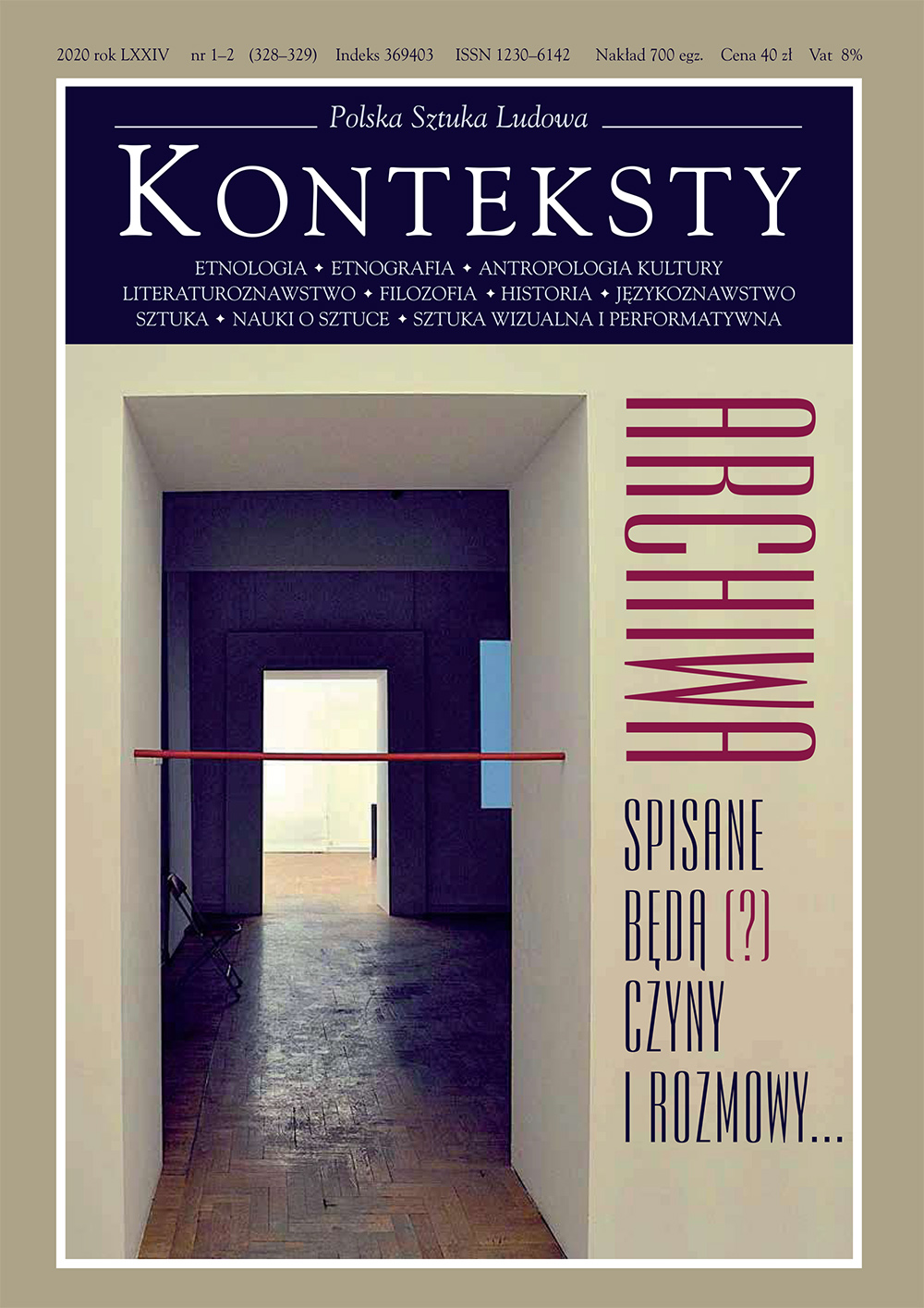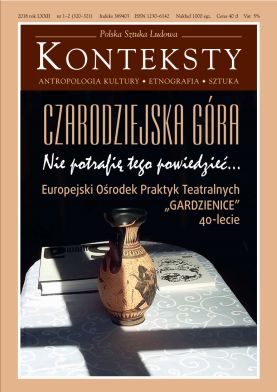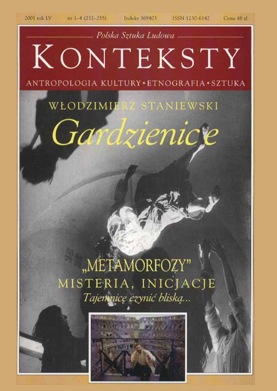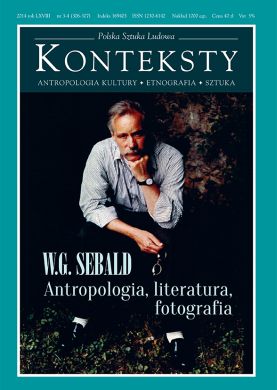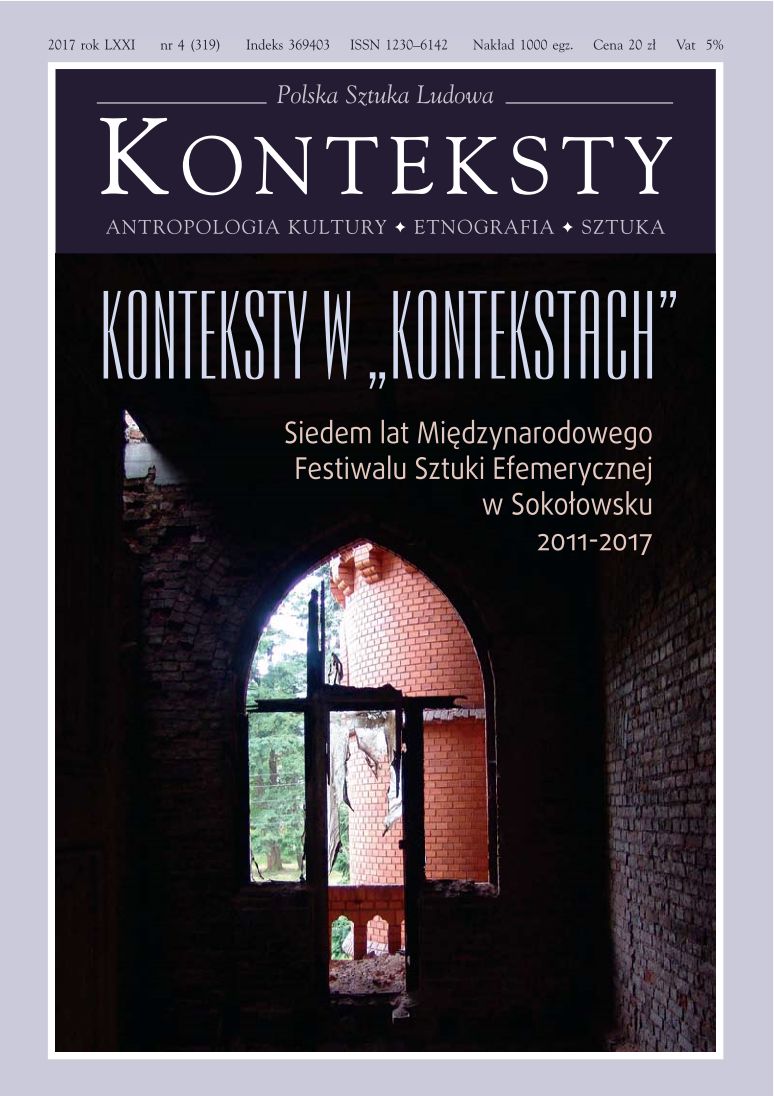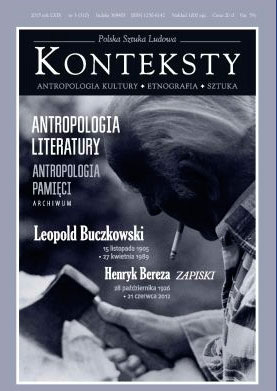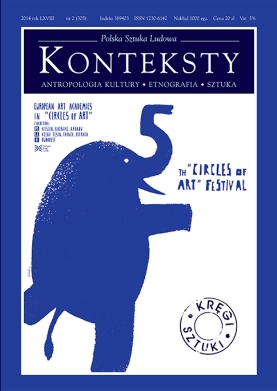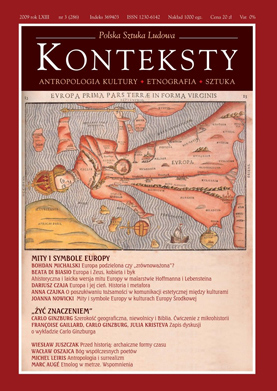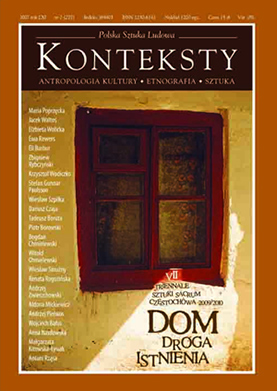Issue 2014/1 (304) - -
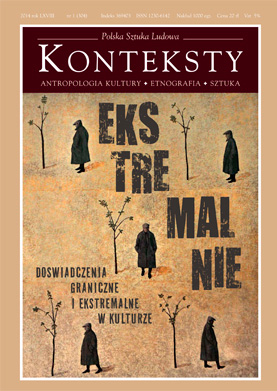
| *** | ||
| Zbigniew Benedyktowicz | Extreme and Border Experiences | 4 |
| Stanisław Krajewski | Extremities: Body and Sense  | 6 |
With a definition of extreme behaviour and situations as his point of departure the author proposed a differentiation into local and global extremities, selected and imposed situations, in order to indicate the relative character of the extremity and its dependence upon affects, and, finally, to reflect on the significance of this category in our life. | ||
| Krzysztof A. Meissner | The Language of the Laws of Physics and Observations of Reality  | 11 |
The text deals with a discussion asking why during the twentieth century the language of the laws of physics describing reality upon a fundamental level departed radically from the language of observing that reality and is eventual consequences. | ||
| * | The Beauty of the Formula - a Discussion | 13 |
| Monika Krajewska | About a Pass, a Chasm and a Gate  | 21 |
An attempt at an existential description of an extreme situation and associated metaphors/symbols: a pass, a chasm and a gate. | ||
| Maciej Krupa | Walking  | 24 |
The text focuses on the experiencing of walking, i.e. travelling on foot, which at present appears to be an increasingly extreme activity. Meanwhile, literature (or wider: writing, art) seems to be inseparably associated with walking; the text follows evidence of this connection, spanning from Aristotle to Bruce Chatwin, W.G. Sebald or Werner Herzog. | ||
| Wojciech Malawski | Towards Silence  | 34 |
The silence with which we are familiar is an ordinary absence of vibrations –a pause among sounds. The silence that we may hear in the course of extreme moments is something else – it originates from our interior and is an announcement of all that, which we do not hear while enclosed in a world of obvious sounds. Is the extreme an experience of touching Silence? | ||
| Piotr Mazik | Im Off for Ski Touring  | 36 |
On experiencing solitariness in the mountains, borderline situations and the occurrence of the world. | ||
| Marcin Gąsienica-Kotelnicki | My Extreme Mind. Chnaging Hands vs. Lift  | 40 |
A story about the psychology of mountain climbing states. | ||
| Marek Pacukiewicz | On the Border | 45 |
| Piotr Jakub Fereński | Between Earth and Heaven  | 50 |
The text considers relations taking place in the highest mountain ranges of the world. Statements by Polish Himalaists discuss experiences associated with a series of tragic expeditions to the peaks of the Himalayas and Karakorum, presented from an axiological viewpoint. Nonetheless, the article is not exclusively an attempt at outlining horizons of values revealed in stories about the extreme experiences of members of expeditions but deals also with the way in which it is possible to examine within the humanities such cultural practices as mountain climbing. | ||
| Łukasz Sochacki | Pop-Neutrino. The Borderline between Myth and Science  | 62 |
An examination of the folklorisation of scientific knowledge (research dealing with neutrino) in popular culture. Interpreting popular scientific articles the author uses categories of meaning, myth and world outlook while seeking fragments of reflection in contemporary culture. | ||
| Janusz Bohdziewicz | Praise of the Surface – Along the Pass of Extreme Thought  | 68 |
The point of departure of this article is a hypothesis about the current exhaustion of the explanatory force of metaphors and imagination connected with transcendence (height) or profundity, and a proposal of replacing it with an exemplary image of surface and tangency. An argument in favour of altering this key image is a changed image of the world, the result of the development of science and technology – in particular the media – while its goal is to comprehend human strivings disclosed in culture, the pursuit of extreme experiences, so popular in the West. Broadly speaking, a desire for extreme experiences appears to be symptomatic for the reorientation of the spirit of the West at the peak of its achieved prosperity and can be interpreted as a new manner of expressing the wish for salvation. | ||
| Kuba Szpilka | Weak Presence  | 75 |
On an extreme event – the power of experience, the non-obvious nature of experience as well as the weakness of power and the might of the unobvious. | ||
| Monika Sznajderman | Your Journey to the Furthest Land  | 79 |
A letter addressed to the author’s father about his journey across the successive levels of the hell of Nazi camps up to liberation. | ||
| Michał Klinger | On the Final Suffering on the Mountain Agraham - Moses - Job - Messiah  | 86 |
The covenant of God and man reveals itself on the Mountain and as an “ultimate” experience within the context of extreme suffering. It was underwent on the Mountain by Abraham, who, tempted by God, experienced the darkness of the faith and together with God attained “a vision”, thus becoming the father of a faith. This is the Mountain ascended by Moses in search of death, on which he remained “but no man knoweth of his sepulchre unto this day”. The author proposed an explanation of the mystery of this death. The “mountain” is the site of God’s great plan to destroy sinful mankind in a flood, after which the ark of hope reaches Ararat. Ancient Syrian tradition contains premises for acknowledging the tradition of “St. Job” as parallel to the Law of Moses. Apparently, the land of Ur is the site of man’s extreme drama, the scandal of the suffering of the innocent Job who within the hermeneutic of the Bible demands from God an equally borderline response. The mission of the suffering Messiah begins in the desert of temptation and reaches its pinnacle on the Mountain. The author suggested a method of interpreting the complicated Biblical texts as a “revelation” addressed to God and dealing with extreme and innocent suffering. The personae of these dramas integrate their personalities more fully. Nevertheless, the traditions of Judaism and Christianity, borrowing from Hellenism, tried different ways of “resolving” the problem of suffering by applying apocryphal addition or simply omission. Only contemporary theology and science about man (in particular psychoanalysis) restored to suffering its due rank of an “element” in the “Mendeleev table” of ultimate and human experience. | ||
| * | The Surface and the Depth - a Discussion | 98 |
| Katarzyna Prot-Klinger | Beyond Memory, Beyond the Metaphor, Beyond Words. On the Memory of the Holokaust  | 105 |
Contemporary historiography grants increasing space to narration pertaining to events in contrast to the scrupulous documenting and recording of facts. In this manner, prime rank is being offered to witness accounts, which, even if they do not reflect “historical” truth, say more about events than historical data. One can ask: what is the memory about the Holocaust in the case of the second generation, i.e. the children of the survivors? Is trauma passed on? What is the difference between the transmission of memory and that of trauma? What does the memory of the Holocaust mean for the second generation of perpetrators? Or for the second generation of witnesses? | ||
| Ryszard Ciarka | „The Theatre of Sources” as a Borderline Experience  | 111 |
In the summer of 1982 I enjoyed the opportunity of taking part in the “Theatre of Sources” undertaking organised by Jerzy Grotowski and the Laboratory Theatre. In an attempt at a recapitulation of this experience and a confrontation of the historical, social, political, ethnographic and even biological (I was thirty years younger) context of the time with the presentday comprehension of the meaning of culture and its sources, the experience appears to be interesting and inspiring. Whatever interpretation path we were to choose we shall tackle the concept of the border, an extreme cultural experience. | ||
| Magdalena Zych | „Things Will Happen”. The Aphrodite Procession at a Polish Wedding  | 116 |
The motto of the “Wedding 21” research project at the Ethnographic Museum in Cracow is the phrase: “you shall encounter your unexpected self”. That, which comprises the wedding imagination and assorted approaches to the wedding and marriage can be recognised in stories recounted by organisers and the young couples, the participants of the studies. The presented text brings the reader closer to contemporary wedding customs and asks about the way in which the power of the ritual renders is presence tangible. | ||
| Aleksander Bratek Robotycki | What is and Ethnologist Doing in a Shoe Shop  | 121 |
Riding his bike along various trails in the evening, the ethnologist passes by people running. The author, however, does not intend to discuss the process of running as such and its salutary or degrading effects for the human organism, but wishes to consider the runner’s accessories – his shoes, and in particular their names. | ||
| Beata Dłutek | Towards Bethlehem. A Dream about Damian. The Production of Tinder  | 126 |
A blind participant of therapy workshops held in Warsaw records, together with her mother, Maria, fascinating “dreams” based on close contact with God, enchantment with encountered persons, and music with African roots, as well as excitement caused by dangerous and inaccessible experiences. | ||
| Maria Dłutek | Dreams  | 128 |
A blind participant of therapy workshops held in Warsaw records, together with her mother, Maria, fascinating “dreams” based on close contact with God, enchantment with encountered persons, and music with African roots, as well as excitement caused by dangerous and inaccessible experiences. | ||
| Zbigniew Benedyktowicz | Movement in Immobility. A Talk with Mikołaj Kasprzyk | 130 |
| Wojciech Tuleya | Mikołaj Kasprzyk and His Paintings | 135 |
| Maria Poprzęcka | A Work of Art in an Era of Handcraft Reconstruction  | 136 |
In the wake of a period of fascination with the potential of virtual worlds, fantastic multimedia or “impossible exhibitions”, museums are accepting a “strategy of rendering present” and return to original exhibits conceived as a specificity that distinguishes them amidst the world of simulacra. Is the reconstruction of non-existent artworks not simply part of a transformation of museums into artistic laboratories and sites producing works of art? | ||
| *** | ||
| Anna Wieczorkiewicz | „Travel to India, My spirit” | 145 |
| Agata Rybus, Anna Wieczorkiewicz | On Both Sides of the Stall  | 149 |
A presentation – viathe prism of objects – of two Indian cities: the holy Hindu town of Varanasi and a town in the Himalayas – McLeod Ganj, populated by Tibetans. Both localities are important for the local social actors and persons pursuing exotica – tourists, travellers and ethnographers from the so-called West. | ||
| Agata Rybus | Travelling Objects. On the Mediation of Meanings and the Negotiation of Identity  | 163 |
An important role in the construction of the tourist experience is played by ethnic souvenirs available on the tourist market. The character of meanings attached to them by tourists indicates that their prime role is materialisation of the cultural difference experienced while travelling. An analysis of narration, including the objects of interest to us, can assist in deciphering the determinants of that difference. The presented text discusses select traces of “Indian qualities” discernible in narrations gathered in the course of research conducted in North India and mediated by souvenirs purchased on the sub-continent. | ||
| Anna Wieczorkiewicz | The Passage to India and Back Again  | 173 |
The article indicates transformations of the topos of the passage to India in contemporary culture, with the point of departure being its Romantic version depicted in a poem by Walt Whitman. Attention is also drawn to its characteristic application in works by Paul Brunton, Herman Hesse, and Carl Gustav Jung, followed by the use made by counterculture. The fundamental question posed by the author is: how does popular culture use the staffage of the spiritual journey? What meanings are evoked with the assistance of the passage to India topos? Literary and film examples are employed to demonstrate the mechanism of the transformation of such topics under the impact of the dissemination of therapeutic culture and its diffusion in assorted domains of life, the rationalisation of the empirical market, the reinforcement of the sphere of consumption that comprises building material for creating identity. In this manner, analysis of the topos turns into a strategy granting insight into more general cultural processes. | ||
| Natalia Bloch | Colonisers, Tourists, Anthropologists. Colonial Heritage in Tourism and Colonial Nostalgia in Anthropology  | 187 |
An attempt to place tourism and anthropology within the domain of the colonial (and post-colonial) heritage and to take a closer look at the ensuing analytical methodological implications. The approach proposed by the author is concerned with going beyond the perspective of conceptualising tourism as a culturally destructive force, in which the partners of tourist contacts become reduced to the role of hapless victims of imaginary depictions, imprisoned within images of exotic objects (in the case of the toured communities), and arrogant consumers-cannibals (in the case of tourists). This mode of theoreticising makes it impossible to capture the dynamic and multi-dimensional nature of the phenomena generated by tourism. | ||
| Jan Gondowicz | Stairs Leading Up, Stairs Leading Down  | 196 |
Odradek, the fantastic creature from prose by Kafka, became (outside Poland) a token of the highbrow version of pop-culture. His name is featured on literary cafes, bookstores, and clubs, has been given to techno band, and is the title of a novel by H. Mathews. Odradek is the topic of hundreds of academic studies representing all the intellectual fashions of the past half a century. While attempting to penetrate the secret of this character the sketch tackles the text by Kafka. | ||
| *** | ||
| Dorota Gut | 203 | |
| Jan Święch | 205 | |
| Marcin Brocki | 206 | |
| Dariusz Czaja | 207 | |
| Zbigniew Benedyktowicz | 210 | |
| Karolina Robotycka | 213 | |
| Aleksander Bratek Robotycki | 217 | |
| Barbara Robotycka | 218 | |
| Adam Czyżewski | 219 | |
| Iwona Święch | 220 | |
| Barbara Major | 222 | |
| Marcin Brocki | 223 | |
| Kuba Szpilka | 226 | |
| Włodzimierz Staniewski | 227 | |
| Janusz Barański | 228 | |
| Katarzyna Barańska | 230 | |
| Konrad Górny | 232 | |
| Róża Godula-Węcławowicz | 233 | |
| Jacek Kowalewski | 234 | |
| Czesław Robotycki | 236 | |
| Roch Sulima | 248 | |
| Anna Niedźwiedź | 251 | |
| * | 252 | |



